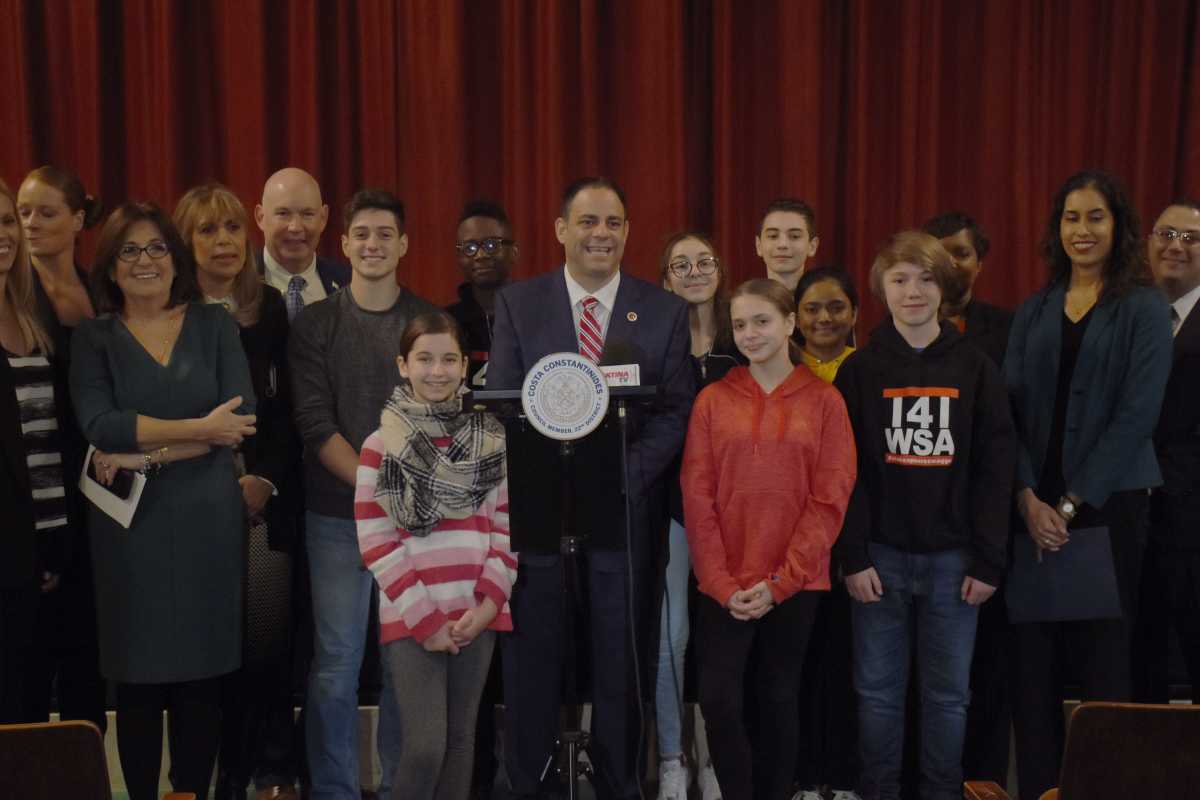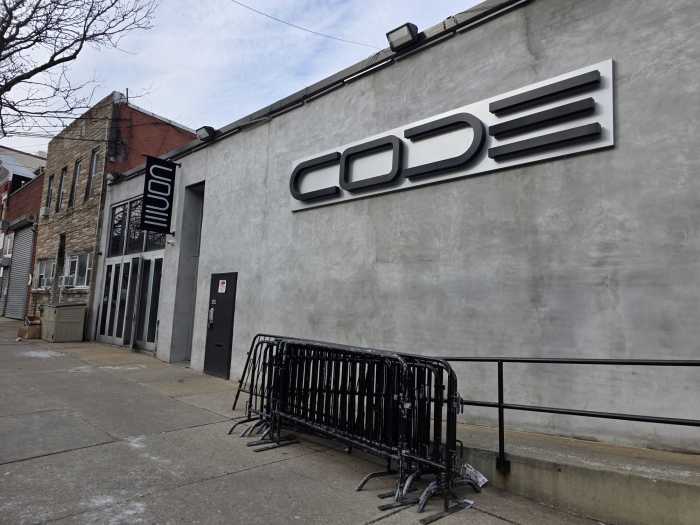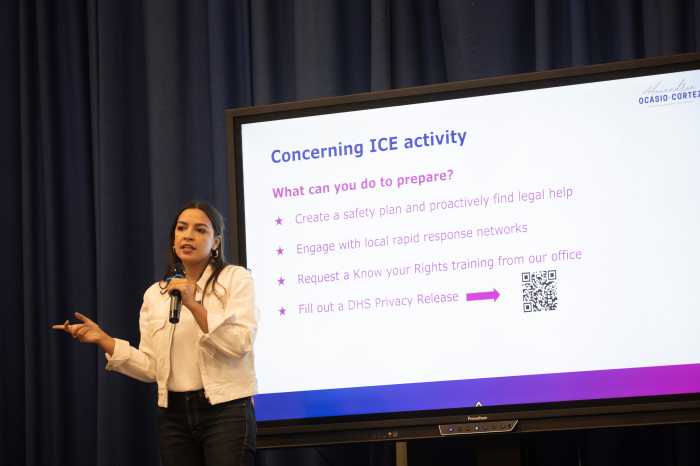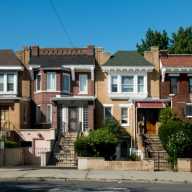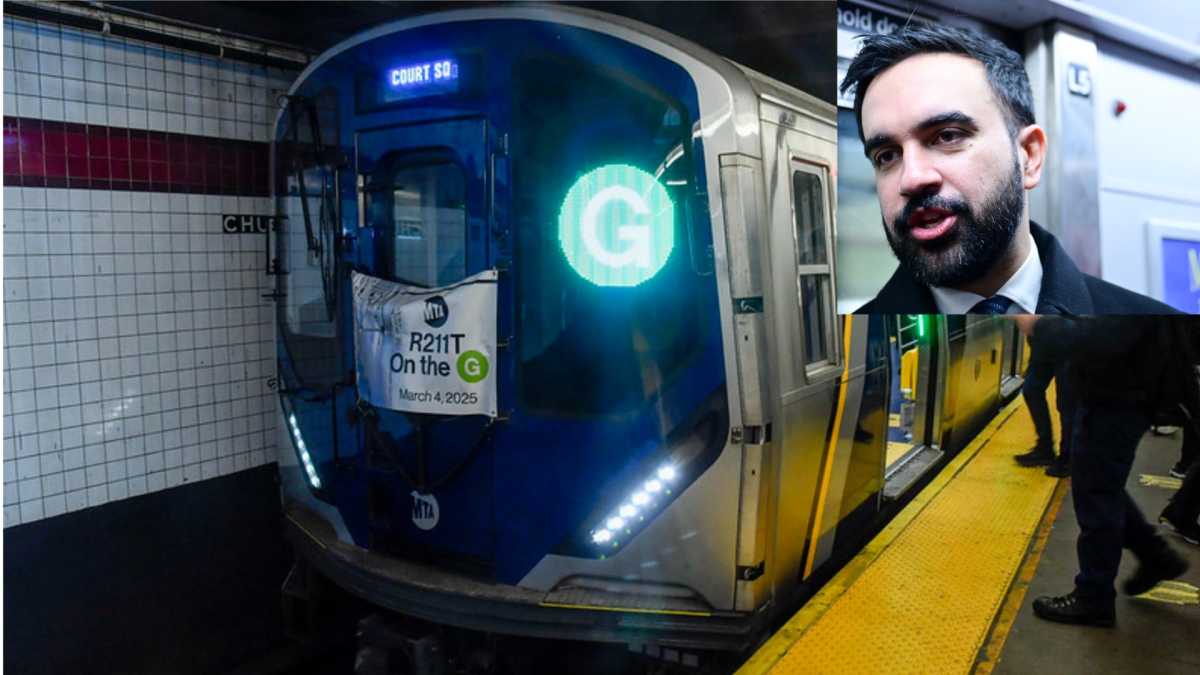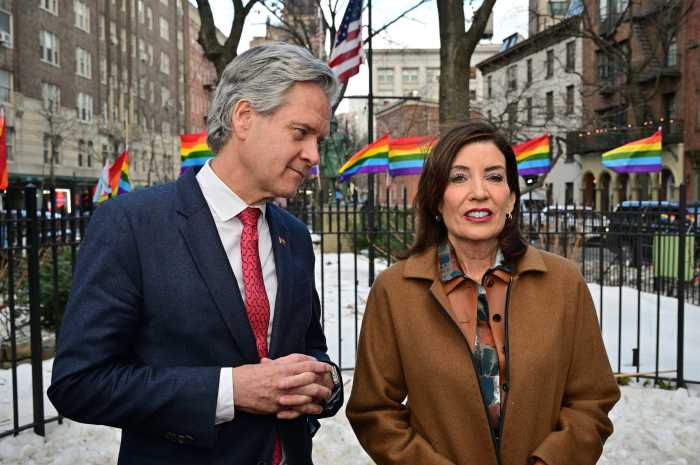I.S. 141 – The Steinway school in Astoria will soon be a part of a cohort of solar-powered schools in New York City.
On Jan. 30., Councilman Costa Constantinides announced at a press conference that solar panels will be installed in the Astoria middle school with construction set to begin this spring.
“By the end of this year this school will be at the forefront of how we power a public school in the 21st century,” said Constantinides.
The middle school will the be the first of six schools within the councilman’s district to receive solar panels in an attempt to mitigate the destructive impact of climate change. There are a total of 15 schools within the 22nd City Council District that Constantinides represents.
Though some, including the president, believe that climate change is a myth, Constantinides said the city and younger generations of Americans know better.
“You guys are going to be the ones who fix the mess we made,” said Constantinides to a row of seventh- and eighth-graders in I.S. 141 – The Steinway school’s auditorium where the press conference was held.
The other selected schools include P.S. 151 – The Mary D Carter School, I.S 126 – The Albert Shanker School of Visual & Performing Arts, P.S 171 – Peter G Van Alst, P.S. 122 – Mamie Fay and I.S. 10 – Horace Greeley Middle School.
In 2014, New York City became the first major U.S. city to pass a bill calling for an 80 percent reduction in the city’s carbon emissions by 2050 and the implementation of the solar panels in schools is part if this effort.
In his State of the City address in 2016, Mayor de Blasio committed to “increase solar capacity” on cut buildings five-fold over the next three years to 25 Mv, enough to power more than 6,000 New York City households.
The city owns over 4,000 buildings including public schools, public hospitals and libraries.
But making buildings more energy efficient is just one measure to cut carbon emissions.
The city, as noted on its Sustainability website, would also ideally needs to replace many fossil fuel based heating and hot water systems with renewable or high efficiency electric systems, transition toward a renewable based electric grid, achieve zero waste in landfills, and reduce the number of miles driven in the city while replacing remaining vehicles to zero emission vehicles.
“The work that we have done already has yielded the effect of over 700 cars off the road,” Department of Citywide Administrative Services Commissioner Lisette Camilo said during the press conference.

